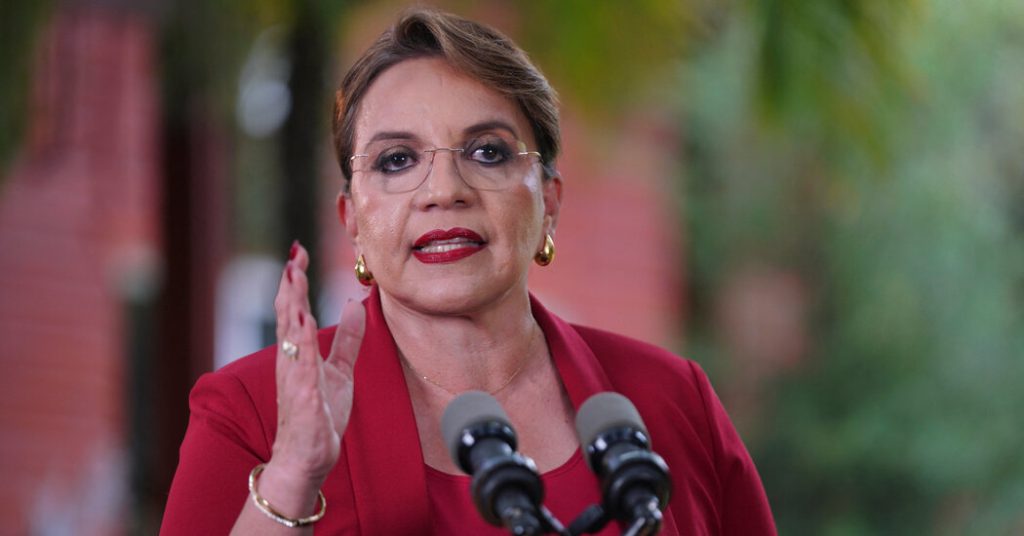Honduras’s president threatened to push the U.S. military out of a base it built decades ago in Honduras if President-elect Donald J. Trump carries out mass deportations of undocumented immigrants from the United States. President Xiomara Castro of Honduras made the threat in an address broadcast on television and radio, marking the first concrete pushback by a leader in the region against Mr. Trump’s deportation plans. Honduras’s foreign minister, Enrique Reina, stated that the Honduran leader has the power to suspend an agreement with the United States that allows them to operate the Soto Cano air base, which could have grave consequences for the country, given its reliance on the U.S. as its largest trading partner and source of aid.
The response from the Trump transition team to Ms. Castro’s warning was to engage with Latin American partners to ensure the southern border’s security and return illegal immigrants to their home countries. While President Trump has promised swift deportations, his administration has yet to share specific plans, leading Latin American governments to speculate about what actions may be taken. The governments in the region are trying to remain on good terms with Mr. Trump, highlighting the economic contributions of their citizens in the U.S. and preparing for any large-scale expulsions that may occur.
Governments in Latin America rely on remittances from immigrants in the U.S., which make up a significant portion of their economies. Honduras, for example, receives about 25 percent of its income from remittances. More than half a million undocumented Hondurans, roughly 5 percent of the population, were estimated to be living in the U.S. in 2022. The U.S. maintains a military presence in various countries in the region, with the Soto Cano air base serving as a key location for American military and civilian personnel, involved in efforts such as counternarcotics, disaster relief, and humanitarian aid.
While many Hondurans celebrated Ms. Castro’s statements, some elected officials preferred to maintain dialogue with the Trump administration and noted that removing the U.S. military from the base would not prevent mass deportations. The Honduran foreign minister expressed the country’s intention to remain on good terms with the U.S. while backing the president’s statements, suggesting that the relationship might be re-evaluated if mass deportations of migrants violating their rights occur. The government’s stance has raised eyebrows, as Ms. Castro has previously taken a confrontational tone toward the U.S. publicly but sought continued support in private.
Latin American countries like Honduras are placed in a challenging position to influence U.S. migration policy, particularly under a Trump administration likely to be skeptical of their attempts to shape policy. Mexico, with its significant economic and geopolitical influence, may have more leverage and involvement in shaping future migration policies. Countries like Venezuela and Cuba, facing U.S. sanctions and lacking full diplomatic relations, are unlikely to accept large numbers of deportation flights, further complicating the issue of mass deportations. The meeting of foreign ministers called by Honduras and Mexico to address the deportation issue signals a coordinated regional response to potential changes in U.S. immigration policy.












